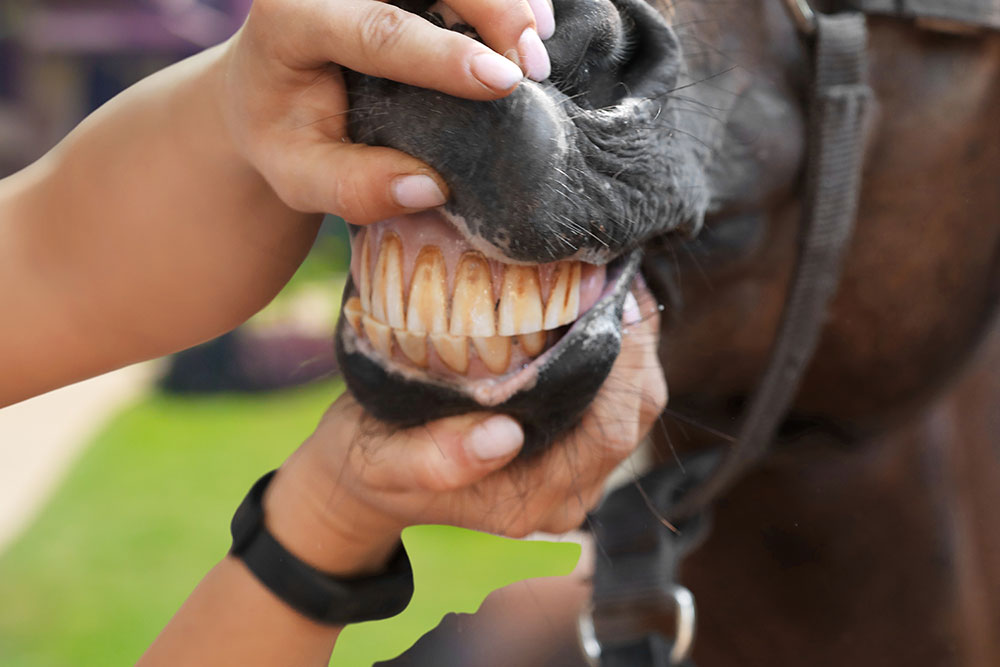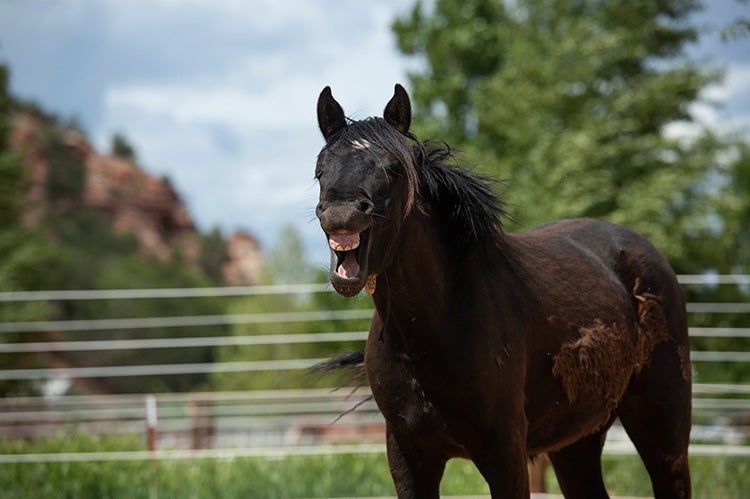Horse mouth ulcers are a common yet often overlooked issue among equine enthusiasts. These painful sores can significantly impact a horse’s comfort, health, and performance. Understanding the causes, symptoms, and treatment options for these ulcers is crucial for maintaining your horse’s overall well-being.

What Are Horse Mouth Ulcers?
Horse mouth ulcers are small, painful sores that can develop on the gums, tongue, or inside the cheeks of a horse’s mouth. These ulcers can vary in size and severity, causing discomfort and difficulty in eating.
Causes of Horse Mouth Ulcers
1. Sharp Teeth
One of the primary causes of mouth ulcers in horses is sharp teeth. Horses require regular dental check-ups to prevent sharp edges from forming on their teeth. These sharp edges can irritate the mouth’s soft tissues, leading to ulcers.
2. Foreign Objects
Foreign objects, such as bits of hay or feed, can become lodged in a horse’s mouth, causing irritation and ulcers. Ensuring proper feeding practices and regular mouth inspections can help prevent this issue.
3. Infections
Bacterial or viral infections can also lead to the development of mouth ulcers. Infectious diseases such as vesicular stomatitis can cause ulcerations in the mouth.
4. Nutritional Deficiencies
A lack of essential nutrients, particularly vitamins and minerals, can contribute to the formation of ulcers. A balanced diet is crucial for preventing nutritional deficiencies.
Symptoms of Horse Mouth Ulcers
Recognizing the symptoms of mouth ulcers in horses is essential for early intervention. Common signs include:
- Reluctance to eat or drink
- Drooling or excessive salivation
- Bad breath
- Visible sores or lesions in the mouth
- Swelling around the mouth or jaw
Diagnosing Horse Mouth Ulcers
A thorough examination by a veterinarian is necessary to diagnose mouth ulcers accurately. The veterinarian may perform an oral examination and take samples for laboratory analysis if an infection is suspected.
Treatment Options for Horse Mouth Ulcers
1. Dental Care
Regular dental care is crucial in preventing and treating mouth ulcers. Floating, or filing down sharp teeth, can help minimize irritation. For more on this, visit how often horses need teeth floated.
2. Medications
Anti-inflammatory medications and topical treatments may be prescribed to reduce pain and promote healing. Antibiotics might be necessary if an infection is present.
3. Dietary Adjustments
Ensuring a balanced diet rich in essential nutrients can help prevent the recurrence of mouth ulcers. Supplementing with vitamins or minerals may be recommended.
4. Environmental Changes
Addressing environmental factors, such as improving feeding practices and ensuring clean living conditions, can help reduce the risk of ulcers.
Preventing Horse Mouth Ulcers
1. Regular Dental Check-Ups
Routine dental check-ups are essential for maintaining oral health and preventing ulcers. Consider exploring our guide on equine dental care.
2. Balanced Diet
Providing a nutritionally balanced diet can help prevent deficiencies that may contribute to ulcer formation.
3. Regular Mouth Inspections
Frequent inspections of your horse’s mouth can help identify potential issues before they become severe.
When to Consult a Veterinarian
If you notice any signs of mouth ulcers in your horse, it’s essential to consult a veterinarian promptly. Early intervention can prevent complications and promote a faster recovery.

FAQs About Horse Mouth Ulcers
What are the main causes of horse mouth ulcers?
The main causes include sharp teeth, foreign objects, infections, and nutritional deficiencies.
How can I prevent mouth ulcers in my horse?
Regular dental check-ups, a balanced diet, and frequent mouth inspections can help prevent mouth ulcers.
What should I do if my horse has mouth ulcers?
Consult a veterinarian for a thorough examination and appropriate treatment plan.
For more information on equine dentistry, visit equine dentistry basics.
This article contains affiliate links. We may earn a commission at no extra cost to you.
